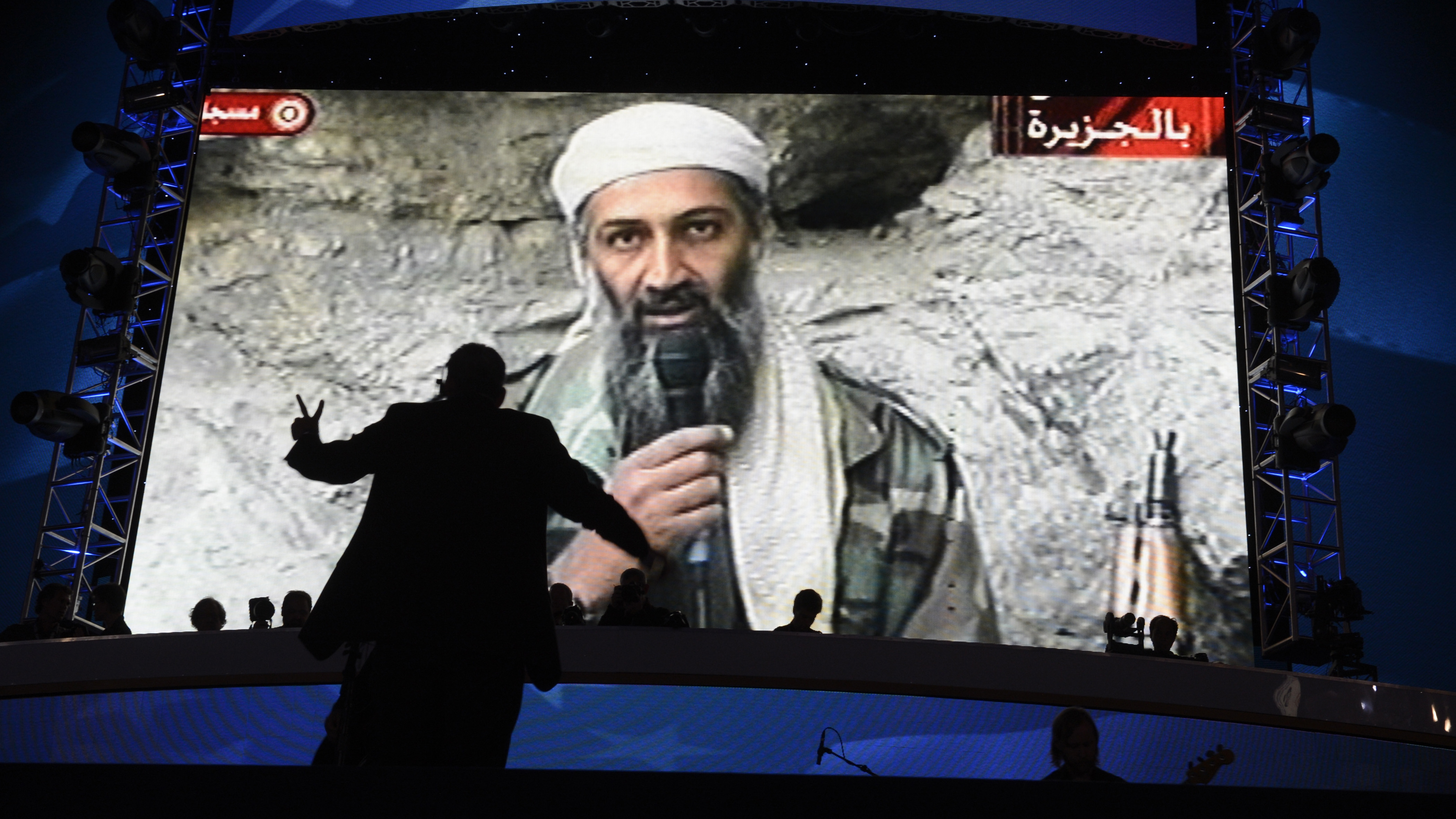Osama bin Laden spokesman to appear in New York court
Osama bin Laden’s son-in-law and spokesman will appear in a New York court later today in a landmark prosecution on US soil.

Sulaiman Abu Ghaith was captured in Jordan over the last week. The Kuwait-born al-Qaida spokesman, part of Osama bin Laden’s inner circle, lauded the attacks of September 11 and warned there would be more.
The case marks a legal victory for the Obama administration, which has long sought to charge senior al-Qaida suspects in US federal courts instead of holding them in Guantanamo Bay, Cuba.
Charging foreign terror suspects in US federal courts was a top pledge by President Obama shortly after he took office in 2009 aimed, in part, to close Guantanamo Bay.
By many Republicans in Congress do not want high-threat terror suspects brought into the United States, fearing that outcomes in a civilian jury trial are too unpredictable, compared to a military trial.
Attorney General Eric Holder announced the capture of the international fugitive yesterday, saying “no amount of distance or time will weaken our resolve to bring America’s enemies to justice.” Exactly how he was captured remains unclear.
Osama bin Laden’s relative and ‘spokesman’
The Justice Department said Abu Ghaith was the spokesman for al-Qaida, working alongside bin Laden and current leader Ayman al-Zawahri, since at least May 2001. Abu Ghaith is a former mosque preacher and teacher and urged followers that month to swear allegiance to bin Laden, prosecutors said.
The day after the September 11 attacks, prosecutors say he appeared with bin Laden and al-Zawahri and called on the “nation of Islam” to battle against Jews, Christians and Americans.
Shortly afterward, Abu Ghaith warned in a speech that “the storms shall not stop – especially the airplanes storm” and advised Muslims, children and al-Qaida allies to stay out of planes and high-rise buildings. In one video, he was sitting with bin Laden in front of a rock face in Afghanistan. Kuwait stripped him of his citizenship after the 2001 attacks.
In 2002, under pressure as the US military and CIA searched for bin Laden, prosecutors said Abu Ghaith was smuggled into Iran from Afghanistan.
Tom Lynch, a research fellow at the National Defense University in Washington, described Abu Ghaith as one of a small handful of senior al-Qaida leaders “capable of getting the old band back together and postured for a round of real serious international terror.”
“His capture and extradition not only allows the U.S. to hold and perhaps try a reputed al-Qaida core survivor, further tarnishing its core brand, but it also points to the dangers for those few remaining al-Qaida core refugees,” Lynch said.
Republican Senator Lindsey Graham accused the White House of sneaking Abu Ghaith into the U.S. to avoid any backlash from Congress.
“If this man, the spokesman of 9/11, isn’t an enemy combatant, who is?” Abu Ghaith “should be going to Gitmo. He should be kept there and questioned.”
Since 2001, 67 foreign terror suspects have been convicted in US federal courts, according to watchdog group Human Rights First.
By comparison, of the thousands of detainees who were swept up shortly after the terror attacks and held at Guantanamo Bay, only seven were convicted by military tribunals held at the US Navy base in Cuba, the watchdog group said.
The vast majority have been sent back overseas, either for rehabilitation or continued detention and prosecution.